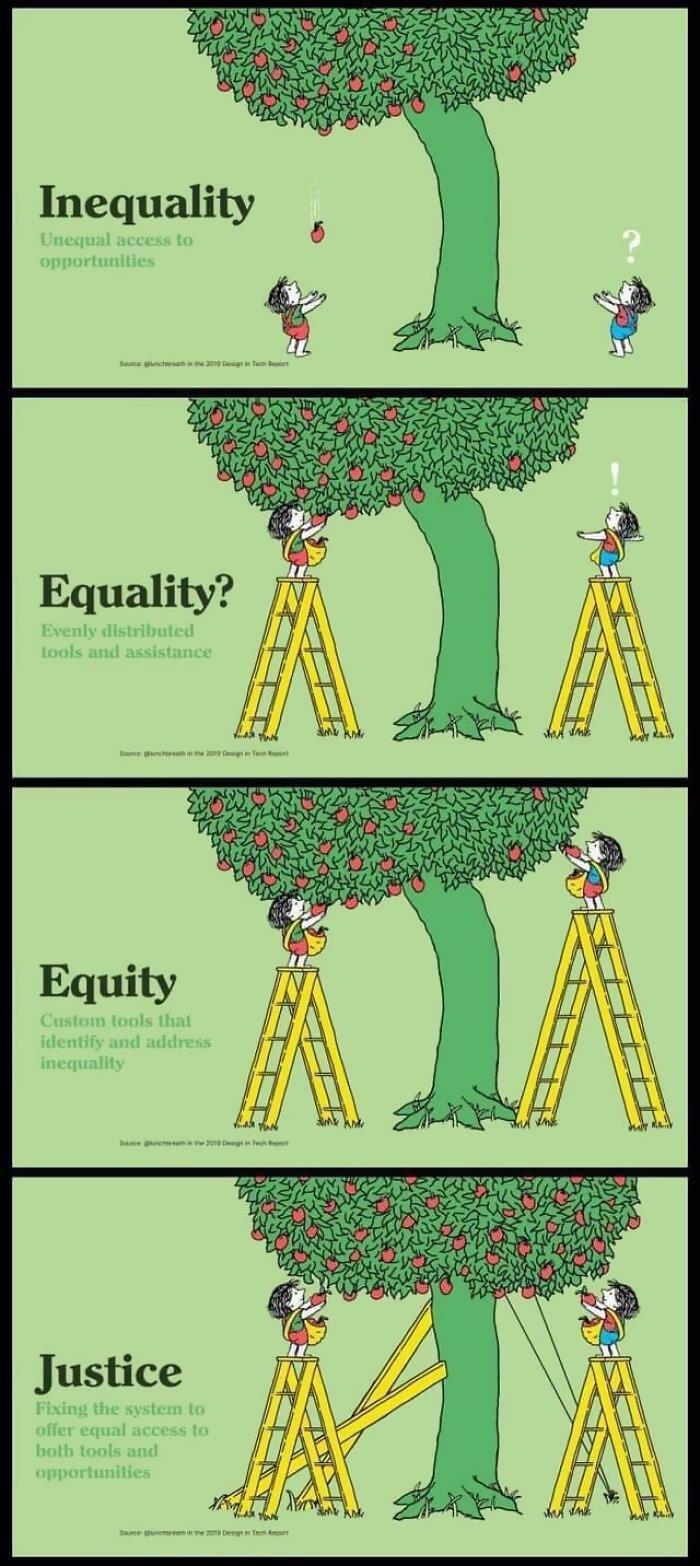
Equality, equity, inequality and justice are all terms which describe the way in which people are treated by society. Each of these terms has a slightly different meaning and can be used to describe a variety of situations. They are are often used interchangeably, but they actually have very different meanings and are all important concepts that have to do with fairness and justice. In this article we will tackle these concepts and see the differences between them.
Equality means everyone gets the same things (resources, time, money, etc.)
Equality is a term that can be difficult to define. Equality has many layers, but one of the most basic ideas behind it is that everyone should receive the same things: resources, time, money, etc. Equality doesn’t just mean getting the exact same thing as someone else; equality means treating everyone equally regardless of gender identity/expression or race/ethnicity when deciding who gets what resource first or last; equality also means giving everyone equal opportunity and access despite differences between us like disability status (physical impairment) or socio-economic class backgrounds
Inequality is when someone has less than an equal share of something.
Inequality is the opposite of equality. It means someone has less than an equal share of something. Inequality, therefore, can be measured by looking at the distribution of wealth in a population. For example, if you look at salaries in the United States and find that some people earn more than others, there’s inequality (the higher paid employees have less than equal shares).
In a country like Sweden or Norway where everyone has similar access to education and healthcare (because these services are provided by the government), there is little inequality–everyone generally has about an equal amount of money and resources available to them.
Equity means everyone gets what they need.
Equity means everyone gets what they need. Equity is about ensuring that people have the resources, support and opportunities to reach their full potential. It’s about making sure that everyone has what they need in order to succeed. This means that equity seeks to understand the needs of different groups, and then provide access to those needs through a variety of strategies including increased funding for programs and services that meet those needs, cultural competency training for service providers and more equitable government policies around education, health care and employment. Equity recognizes that people have different needs at different points in their lives because some groups experience barriers due to race or gender identity or other factors such as socioeconomic status (SES).
Justice ensures that all people are treated fairly and with respect.
The definition of justice is a set of values and principles. There are many different ways to think about justice. Justice can be an ideal, a social goal, a process, a principle or even just a state of mind. It’s important to distinguish between equality and equity because they are not the same thing as justice.
Equality isn’t perfect but there are ways to ensure people get a fair shake in life.
While equality is important, it’s not perfect. There are still inequalities in the world that need to be addressed and corrected. For example, an employee who has been at their job for longer than another colleague may not get the same pay hike because of their age or gender.
Equality isn’t always fair either because sometimes one person might benefit more than another person even though they didn’t do anything extra themselves besides being born into different circumstances with different backgrounds (like race). This could lead us down a slippery slope towards discrimination against certain groups based upon those differences alone which would inevitably lead us back towards inequality again–and possibly worse this time around too! We don’t want people getting treated unfairly just because someone else looks different from them; so there needs to be some sort of balance between treating everyone fairly without giving up personal freedoms either–which means finding ways other than just relying on laws alone when trying finding solutions for problems such as these.”
